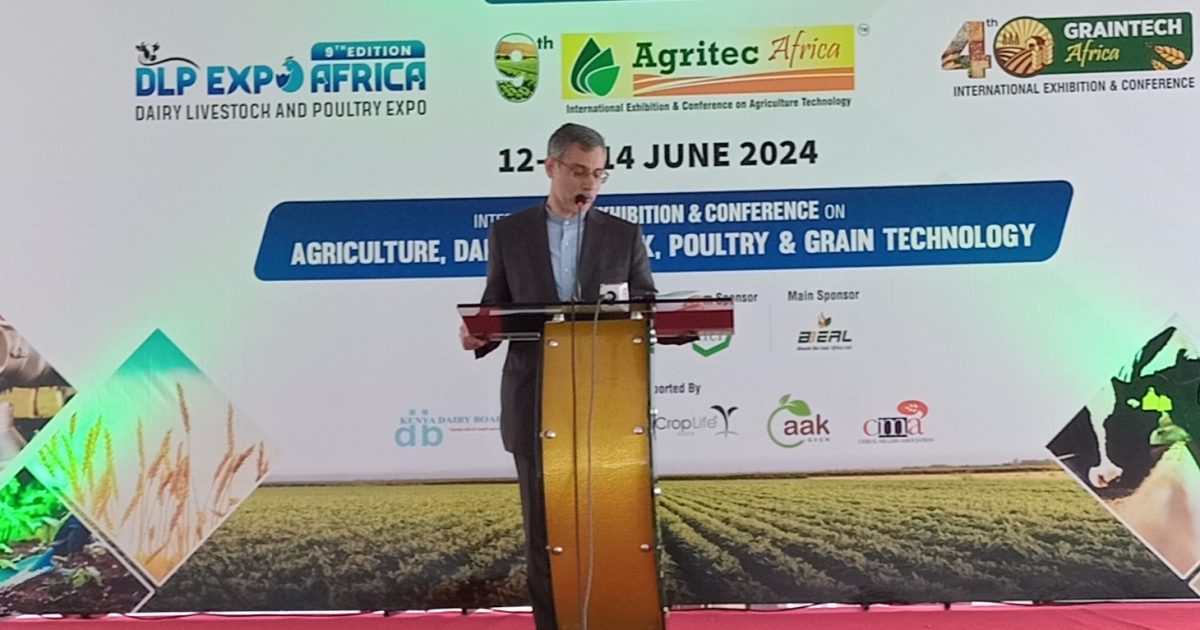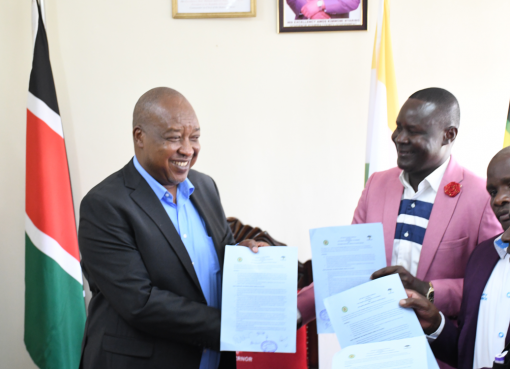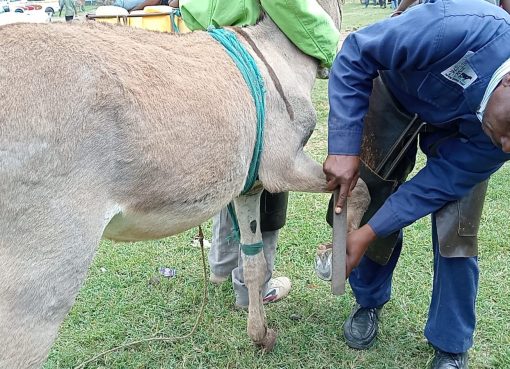The 9th edition of the Agritech Africa 2024 Expo has officially kicked off in Nairobi under the theme ‘Improving Farmers Income through Technology and Innovation’.
The three-day long convention ending on the 14th June, 2024 has attracted over 180 international and local businesses and local farmers.
Agriculture and Livestock Development CS Mithika Linturi said agriculture is the backbone of Kenya’s economy and has a long way to go in terms of ensuring food security and sustainability.
Linturi noted that the agricultural sector faces several challenges ranging from unpredictable weather patterns to market fluctuations.
Nevertheless, he observed that ICT has presented opportunities to transform agriculture, allowing farmers to optimise resource utilisation by precisely tailoring farm inputs, which not only increases productivity, but also reducing costs and negative environmental impact.
In a speech read on his behalf by the Ministry’s Director of Administration Badu Katelo, the CS added that efficient management of water is a critical consideration in the face of climate change which, in turn, contributes to sustainable farming practices.
“Digital innovations unlocked new opportunities for farmers to access market value through e-commerce platforms,” he disclosed, explaining that mobile applications connect farmers directly to consumers.
Speaking at the Expo, Iranian Ambassador to Kenya Dr. Ali Gholampour noted that Iran being the biggest importer of Kenyan tea products is one of the main centre partner to Kenya.
“There is a need to give a hand to the public and private sectors in order to bring development and cooperation between the two countries,” added Dr. Gholampour.
He also reiterated that Iran in conjunction with Kenya is ready to introduce cutting-edge technology in various fields as they have made remarkable strides in agriculture.
The Expo provided an opportunity, where local farmers are able to increase productivity and income promoting trade through establishment of business links between Kenya and the greater Africa.
By Ruth Katheu and Cecil Oduor




